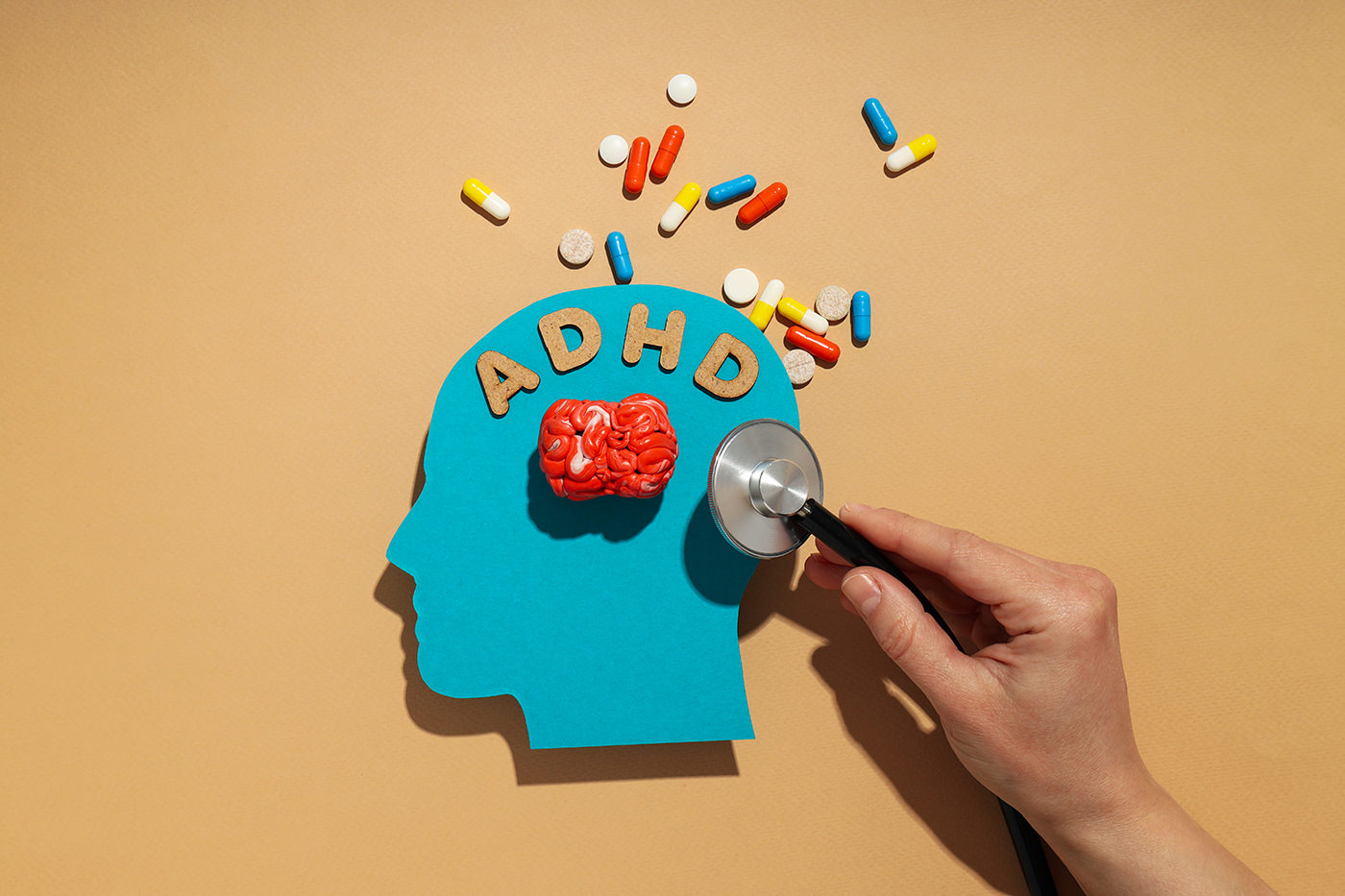ADHD—Attention-Deficit/Hyperactivity Disorder—is one of those conditions that’s easier to diagnose than to manage. If you or someone you care about has recently been diagnosed with ADHD, you might find yourself wrestling with a lot of questions. One of the most pressing ones? Medications. With all the different options available, how do you know which one is right for you?
This article is here to walk you through everything you need to know about ADHD medications—whether you’re considering treatment for yourself or for a loved one. We’ll explore what medications are commonly used, how they work, potential side effects, and why finding the right one is so personal.
By the end, you should feel more confident and informed about how ADHD medications fit into your treatment plan. Ready? Let’s get into it.
What Exactly is ADHD, and Why Are Medications Part of the Picture?
Before we get into the meds themselves, let’s take a quick step back and talk about what ADHD actually is. ADHD is a neurodevelopmental disorder that affects focus, impulse control, and activity levels.
For some people, it can mean difficulty staying on task, forgetfulness, or struggling with attention for extended periods. For others, it could be a constant need to move or the feeling of being “on edge.” The symptoms vary, but they share one thing in common: they interfere with daily life—whether at school, work, or home.
Now, here’s the thing about ADHD: it’s not just a “lack of discipline” or “a little bit of laziness.” ADHD is a legitimate medical condition, and just like with any other medical issue, treatment is often needed. That’s where medications come in. For many individuals, medications can help regulate the brain’s activity, making it easier to focus, stay on task, and keep things moving.
The Two Main Types of ADHD Medications
Okay, let’s talk meds. When it comes to ADHD, there are two main types: stimulants and non-stimulants. Each type has its own pros and cons, and choosing between them often depends on your unique symptoms and how you respond to treatment.
Stimulants: The Front-Runners
Stimulants are the most commonly prescribed medications for ADHD, and for good reason. They’ve been around the longest and tend to be the most effective for most people. They work by increasing dopamine and norepinephrine levels in the brain, which helps improve attention, focus, and impulse control.
There are two main categories of stimulants:
-
- Methylphenidates (e.g., Ritalin, Concerta)
-
- Amphetamines (e.g., Adderall, Vyvanse)
These medications are often the go-to choice, especially for those who need a more immediate improvement in focus. But, like anything, stimulants come with their own set of potential side effects, which we’ll get into shortly.
Non-Stimulants: For When Stimulants Aren’t Enough
Not everyone responds well to stimulant medications. Some people experience side effects like anxiety, insomnia, or appetite loss. If that’s you, your doctor might recommend a non-stimulant medication. These meds are typically prescribed when stimulants aren’t effective, or when a person has a history of substance abuse (since stimulants can be habit-forming).
One well-known non-stimulant is Strattera (atomoxetine). It works by increasing norepinephrine levels in the brain. It’s often slower-acting compared to stimulants, but for some, it’s a much better fit.
Other non-stimulants, like Intuniv (guanfacine) and Kapvay (clonidine), help with impulsivity and hyperactivity but are more commonly used for children.
How ADHD Medications Work: The Science Behind the Scenes
Let me explain how these medications work—because understanding the “how” can sometimes make the “why” clearer. Our brains are constantly firing off signals through neurotransmitters (the chemicals in our brain that communicate information). For people with ADHD, these signals can be a bit out of whack. Dopamine, in particular, plays a huge role in focus and motivation.
Stimulant medications work by increasing dopamine levels in the brain, helping to improve attention, memory, and self-control. Non-stimulant medications tend to focus on norepinephrine, another neurotransmitter that’s important for focus and mood regulation.
Now, don’t let all the science intimidate you! At the end of the day, these medications are helping balance your brain chemistry so you can focus better, control impulses, and generally function in a way that feels more manageable.
Potential Side Effects: What to Watch Out For
Every medication comes with potential side effects, and ADHD meds are no exception. Here’s a breakdown of what you might experience and how to manage it.
Stimulants
-
- Common side effects: Insomnia, loss of appetite, dry mouth, and irritability.
-
- What to do: If you’re experiencing sleep issues, try taking your medication earlier in the day. If appetite loss is an issue, eating smaller meals throughout the day might help.
-
- Rare side effects: Increased heart rate, anxiety, or mood swings.
Non-Stimulants
-
- Common side effects: Sleepiness, stomach upset, or fatigue.
-
- What to do: If you feel drowsy, try taking the medication at night or adjusting the dosage.
-
- Rare side effects: Liver issues (with Strattera) or changes in blood pressure (with Intuniv or Kapvay).
Side effects can feel discouraging at first, but don’t give up on the idea of treatment just because of them. Most of these side effects diminish over time, and if they persist, your doctor can work with you to adjust your medication or dosage.
Finding the Right Medication: It’s a Journey, Not a Sprint
Here’s the thing—ADHD medications aren’t “one size fits all.” Everyone’s brain is different, and what works for one person might not work for another. It often takes time to find the medication and dosage that works best for you.
It’s also worth noting that medications alone aren’t the answer. ADHD is best managed with a combination of medications, therapy, lifestyle changes (like exercise and diet), and coping strategies. But medication is often a key component in helping you feel more in control of your life.
Don’t be discouraged if it takes time to find the right fit. It’s part of the process, and your doctor will be right there with you, helping to tweak things as you go.
Alternative Treatments: What Else Can Help?
So, maybe medication isn’t the route you want to go—or maybe you’re just curious about other treatments. Fortunately, there are plenty of alternative strategies that can complement medication or stand in for it.
-
- Cognitive Behavioral Therapy (CBT): A type of talk therapy that helps you change unhelpful thinking patterns and behaviors. It’s especially helpful for managing the emotional side of ADHD—like frustration or low self-esteem.
-
- Mindfulness and Meditation: These practices can help with focus and emotional regulation. They might not cure ADHD, but they can certainly help you manage symptoms.
-
- Diet and Exercise: Believe it or not, what you eat and how much you move can impact how you feel. Eating a balanced diet and getting regular exercise can improve mood, energy levels, and focus.
Wrapping Up: Finding What Works for You
The journey to managing ADHD isn’t always straightforward, but with the right support and treatment plan, it is absolutely possible to live a fulfilling, successful life. Medications are just one piece of the puzzle, and with the help of your doctor, you can find the right mix of meds, therapy, and lifestyle changes to make a real difference.
If you’ve been feeling overwhelmed by your ADHD diagnosis, remember that you’re not alone. You’ve got a team—doctors, therapists, and loved ones—who want to help you succeed. So, take a deep breath, and take it one step at a time.
This is your path, and it’s going to be a lot more manageable than it seems right now. You’ve got this!



